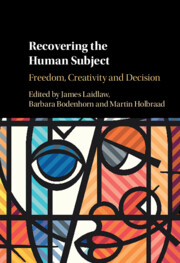Part II - Freedom
Published online by Cambridge University Press: 01 February 2018
Summary

- Type
- Chapter
- Information
- Recovering the Human SubjectFreedom, Creativity and Decision, pp. 113 - 148Publisher: Cambridge University PressPrint publication year: 2018

